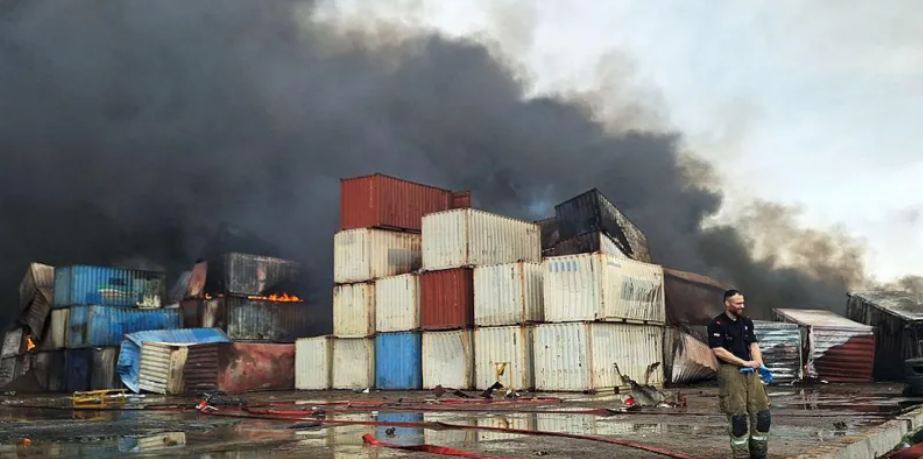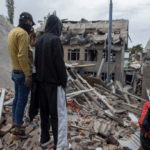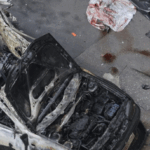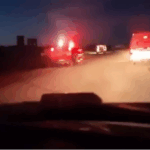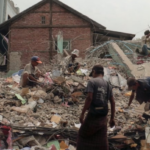Mourning has turned to anger in Iran after a massive explosion at Shahid Rajaee port killed at least 40 people and injured over 1,000 on Saturday, plunging the nation into crisis. Fires continued to burn on Sunday as a thick black cloud of toxic smoke hung over the region, forcing nearby towns and cities to shutter schools, close offices, and urge residents to stay indoors.
The blast, which rocked the country’s largest commercial port near Bandar Abbas, was so powerful that tremors were felt up to 50 kilometers away. In response, Iranian authorities declared Monday a national day of mourning, with Hormozgan province observing an additional two days.
A local festival intended to be a celebration quickly transformed into a somber vigil for the dead and injured. Meanwhile, hospitals nationwide saw an influx of people rushing to donate blood.
As emergency crews battled the ongoing fires, questions about the cause of the explosion have fueled widespread public outrage. Private maritime risk consultancy Ambrey Intelligence suggested that improperly handled shipments of solid rocket fuel—specifically sodium perchlorate, used in ballistic missiles—may have triggered the catastrophe. The New York Times also cited a source tied to Iran’s Islamic Revolutionary Guard Corps, who claimed that the chemical involved was indeed sodium perchlorate.
Speculation on social media has pointed fingers at Iran’s military and Revolutionary Guard, alleging that they had been storing recently imported rocket fuel from China at the port—an accusation a military spokesman has denied. Defence ministry spokesman Reza Talaei-Nik also insisted that no military fuel shipments were involved.
President Masoud Pezeshkian visited the scene on Sunday and vowed a full investigation, assigning the interior minister to oversee the inquiry. “We have come to see first-hand if there is anything or any issue that the government can follow up on,” Pezeshkian said during his visit.
The blast has also raised concerns about Iran’s already strained economy, as Shahid Rajaee port handles nearly 80% of the country’s imports. Officials initially warned of possible food shortages but later reassured the public that only a section of the port was affected and operations elsewhere would continue.
Images shared by local media showed helicopters dumping water on the still-smoldering port, firefighters combing through charred debris, and rescue teams carrying away victims. Roads leading to the site have been sealed off as the investigation intensifies.
For many Iranians, the unfolding disaster is not just a tragedy, but a test of the government’s accountability in the face of yet another national crisis.



